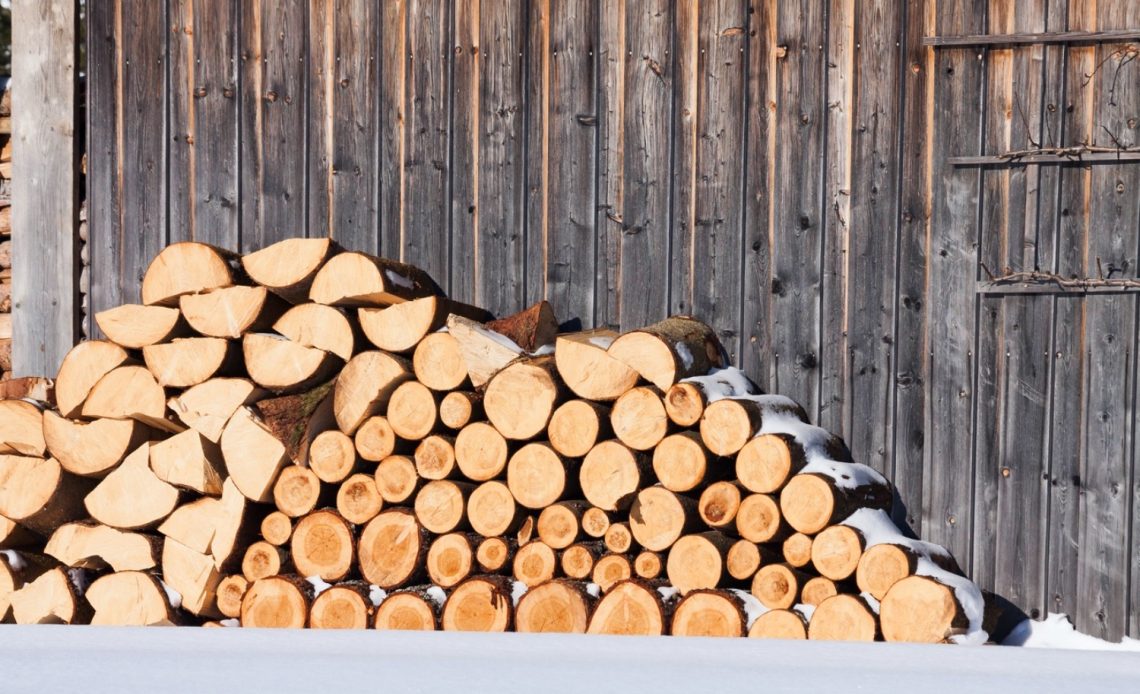

We’re here to help! Wild Yards is a completely free website that is 100% dedicated to helping you create a wildlife-friendly, sustainable yard. Read more
WildYards is reader-supported. When you buy a product through a link on our site, we may earn a comission. Every product is independently selected by our (obsessive) editors and our reviews are unbiased and objective. Read more about our mission or our privacy policy.
Found in the Pacific Northwest across the upper half of the United States through to the Northeast, aspen trees grow best in cool climates that enjoy temperate summers. Aspen trees can be found growing from zones 1 through 7, and are typically seen growing together in groves.
If you live in a region where aspen can be found in abundance, you may be wondering, can you use aspen as firewood? Aspen is better than some types of wood and worse than others. So it’s worth considering the pros and cons before investing in aspen firewood.
Aspen does not burn as hot as other hardwoods. But because it is clean-burning, it can still be used as firewood, and it works especially well for anyone who lives in an area that sees mild winters.
How long do aspen trees live?
Aspen trees (Populus tremuloides) are known to be fast-growing, with many species producing 2 to 3 feet of new growth in a single season.
The aspen tree’s lifespan is much shorter than other trees. Aspen trees typically only live to be between 70 and 100 years old, even in ideal circumstances.
Aspen trees have unique root systems, which allow the trees to reproduce via cloning. A single aspen tree can produce multiple genetically identical clones via its roots. This is why aspen trees are often seen growing in groups.
Aspen trees are fairly weak, and they have shallow root systems, which means these trees often fall before they reach their full lifespan. Aspens are susceptible to wind and ice damage. Pruning the trees and sheltering them from the elements will help prolong their lives.
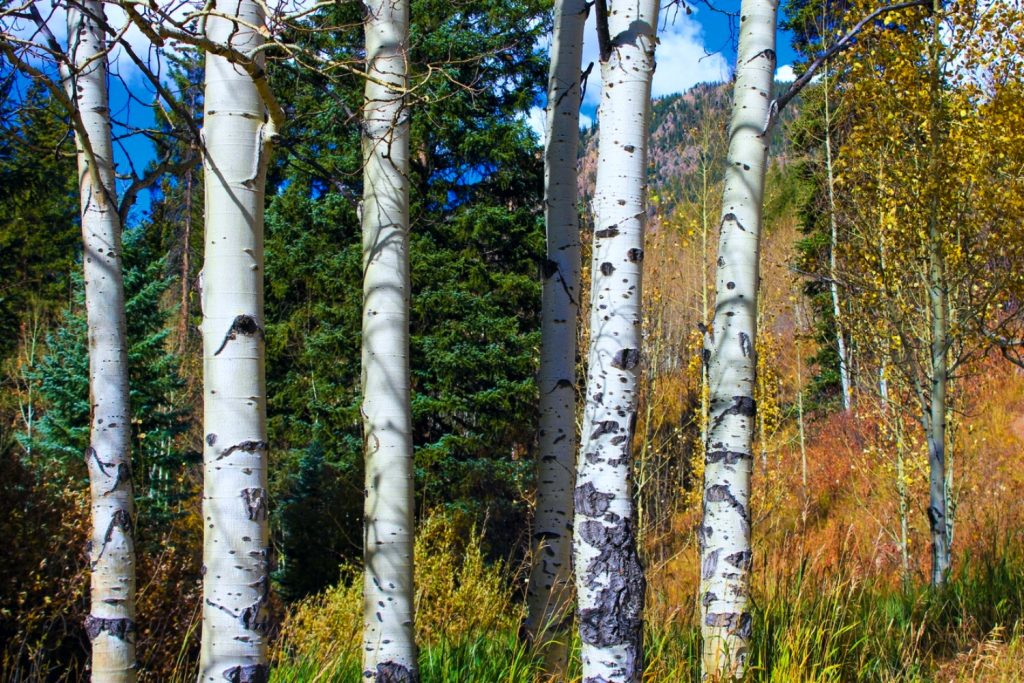
Is aspen a hardwood or softwood?
Technically speaking, aspen trees are hardwoods because they lose their leaves in the autumn months as they prepare for their winter dormancy. So because they’re deciduous, they’re considered hardwoods.
That said, aspens are a very low-density hardwood, which places them somewhere in between a softwood and a hardwood, in terms of firewood.
Aspens are slightly stronger than softwoods, but much softer than hardwoods. Overall, the aspen tree has similar properties to the silver maple tree.
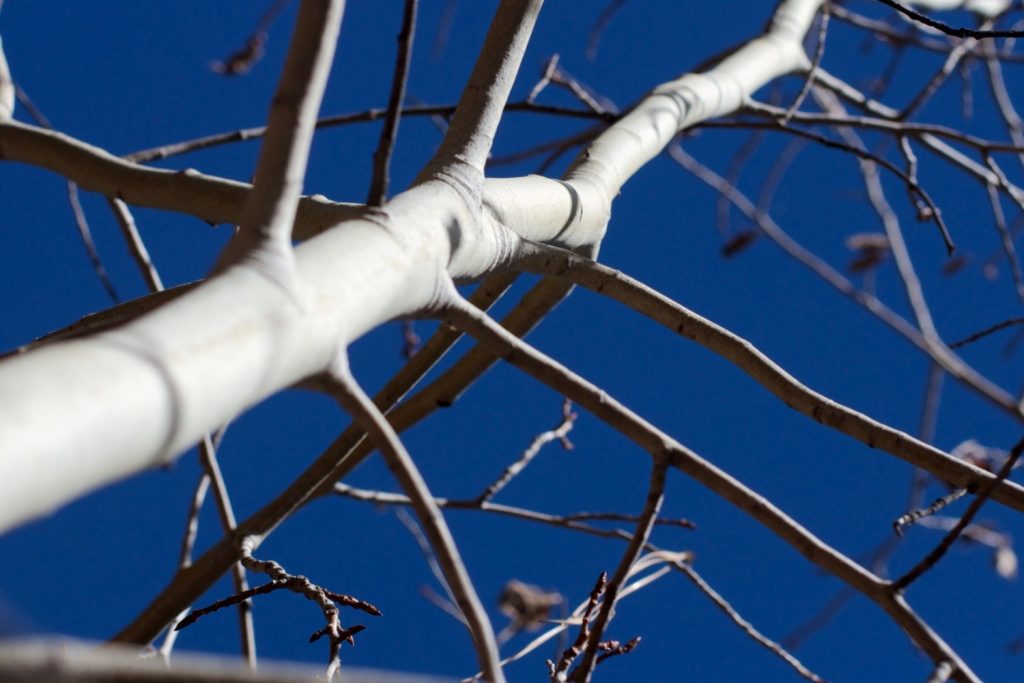
Is aspen easy to split into firewood?
One of the benefits of using aspen as firewood is that it isn’t hard to split. Smaller trees that have thin, skin-like bark are even easier to deal with than older trees that have slightly tougher exteriors.
Although a hydraulic log splitter will make any firewood splitting job much easier, you should be able to split your aspen logs into smaller pieces by hand without much trouble.
Use an axe to break your aspen logs up into 2 to 4 pieces. Logs that measure less than 6 inches in diameter don’t even need to be split — they’re ready to go. In fact, these smaller logs make great kindling.
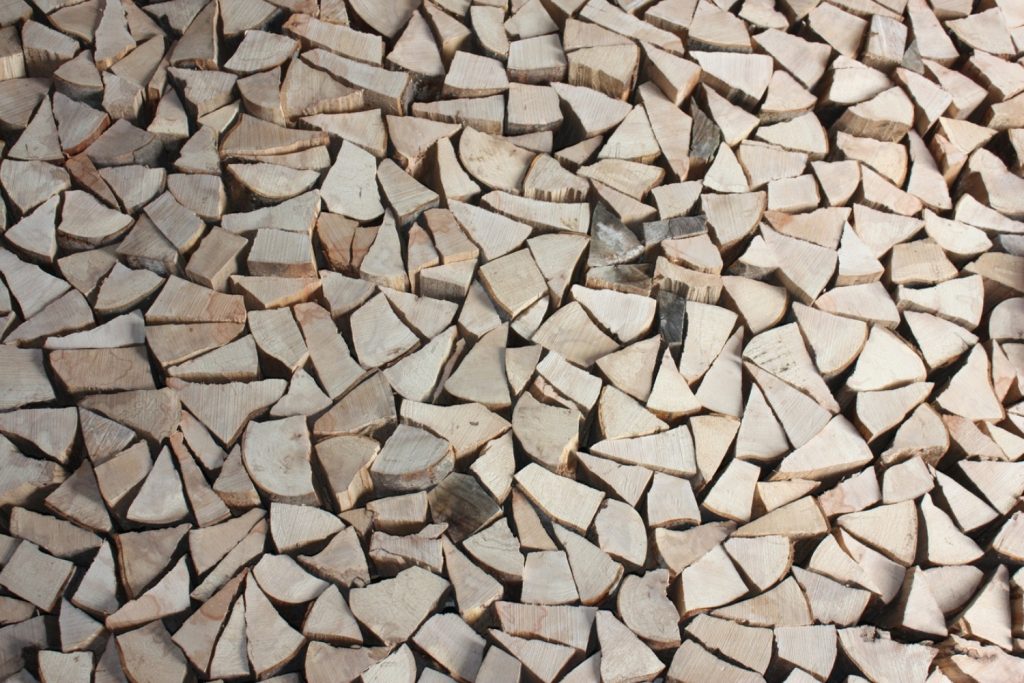
Should you remove the bark from aspen logs?
Aspen trees often play host to insects, like poplar borers. These beetles create tunnel systems where they feed on the tree and lay their eggs. If these bugs are allowed to stay in your firewood, they will encourage the logs to rot before you even get a chance to use them
Infested aspen logs also pose a threat to any living trees that may be growing nearby.
So to help eliminate pesky bugs, it’s best to remove the bark from your aspen firewood. Fortunately, aspen bark is pretty easy to peel away from the log itself.
Use a drawknife to shave the bark away from the firewood. You don’t have to remove every last bit of bark but try to get rid of the bulk of it. These shavings make excellent firestarters for campfires and backyard fire pits.
Removing the bark from your firewood may seem like a hassle. But it can save you from having to spend time cleaning out your fireplace later on.
See, aspen firewood tends to leave a lot of ash behind. Simply removing the bark eliminates a good portion of those ashes, making clean-up much easier.
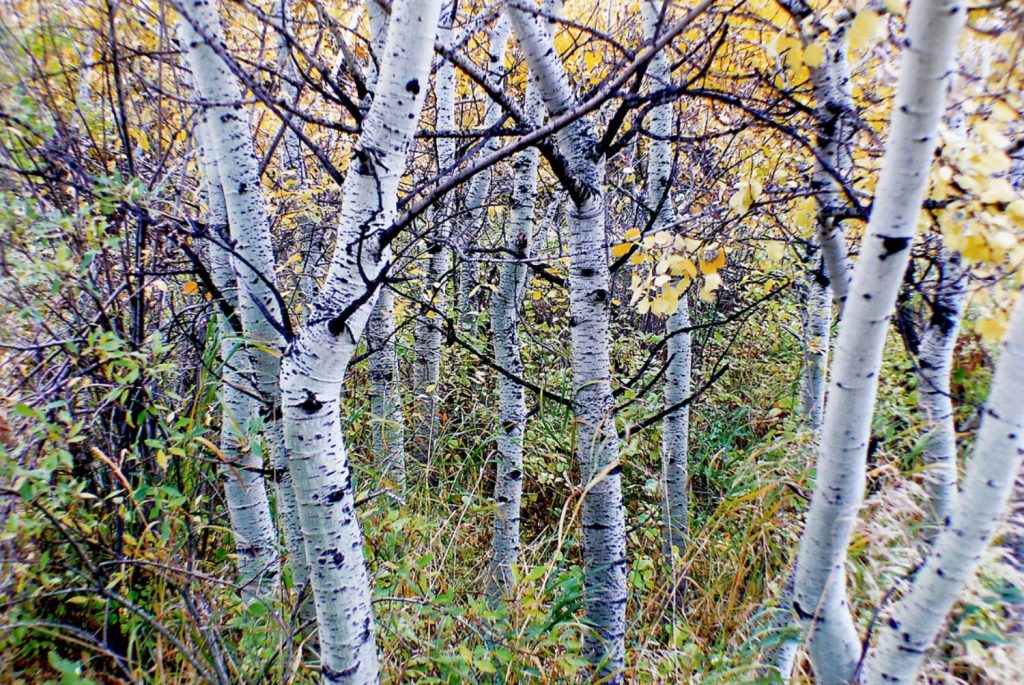
How fast does aspen dry out?
Aspen firewood dries out quickly. Any trees that you cut down in the spring and summer months should be ready to burn by fall and winter.
You’ll need to store your aspen firewood in a sunny, well-ventilated area. It’s also important to keep the logs up off the ground, to prevent rot and to keep unwanted pests at bay.
Cover the logs with a tarp to protect them from rain and snow. And remember to stack the logs split side-down so the pores don’t hold moisture and develop rot.
Aspen is generally dry in 6 to 12 months. Ideally, the wood should have a moisture content of 20% for optimal burning. If you want to use the firewood as soon as possible, split the logs into smaller pieces so they can dry out faster.
Does aspen provide good heat?
On average, aspen firewood has a BTU rating of 15 to 20 million BTUs per cord.
Remember, aspen is a low-density hardwood. And as such, it does not provide as high heat as other hardwoods.
A cord of oak firewood has a BTU rating of 24 to 28 million BTUs per cord, by comparison.
The aspen tree’s BTU rating is on par with those of many softwoods, including both spruce and pine, with 15 to 20 million BTUs per cord each. However, aspen does generate a bit more heat than hemlock and cedar, which generally produce 15 to 18 million BTUs per cord.
Aspen may not be the hottest burning hardwood, but it’s a better option than some softwoods, and it will certainly help keep you warm if it’s all you have on hand.
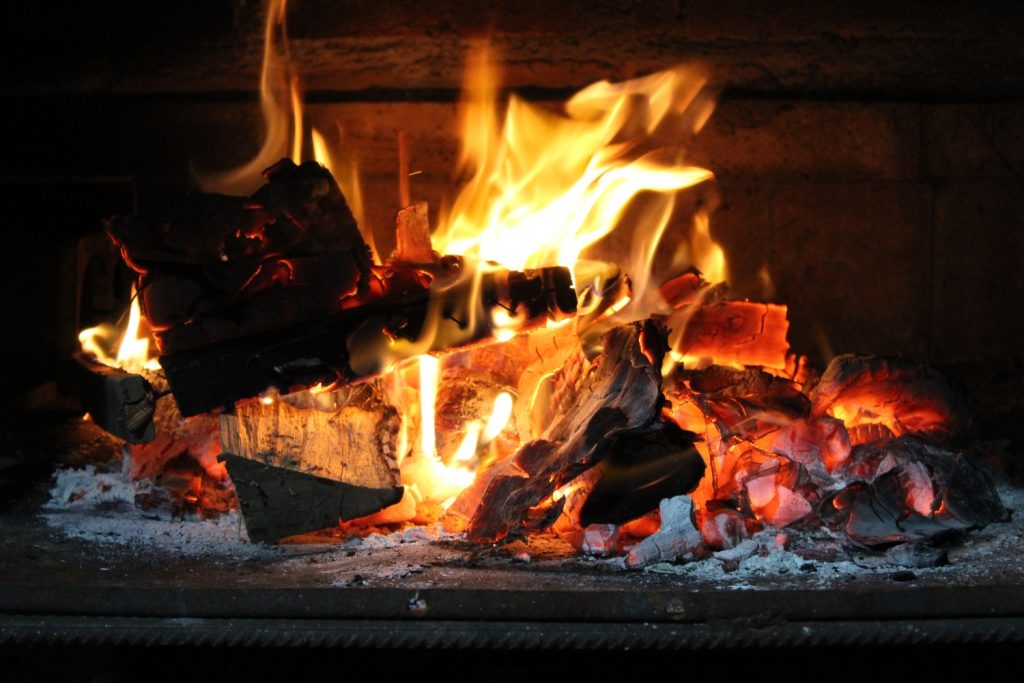
Does aspen burn clean?
Aspen may not burn as hot as some hardwoods, but one of the reasons it shouldn’t be completely written off is that it burns very clean.
Unlike some trees, such as the yew tree, aspen is not a poisonous tree, which means it’s safe to burn.
The smoke produced by aspen firewood is thin and gray. It’s easily dispersed, not the thick, black smoke that burns the back of your throat.
If you find the smoke from your fireplace covers the interior of your home, even after your chimney has been thoroughly cleaned, consider switching to aspen firewood. Aspen smoke won’t coat your walls, furniture, and interior decor.
Aspen wood does not contain much sap, and because the logs are able to dry out so quickly before they’re burned, they often don’t produce many sparks. This makes aspen logs a great option for open fireplaces.
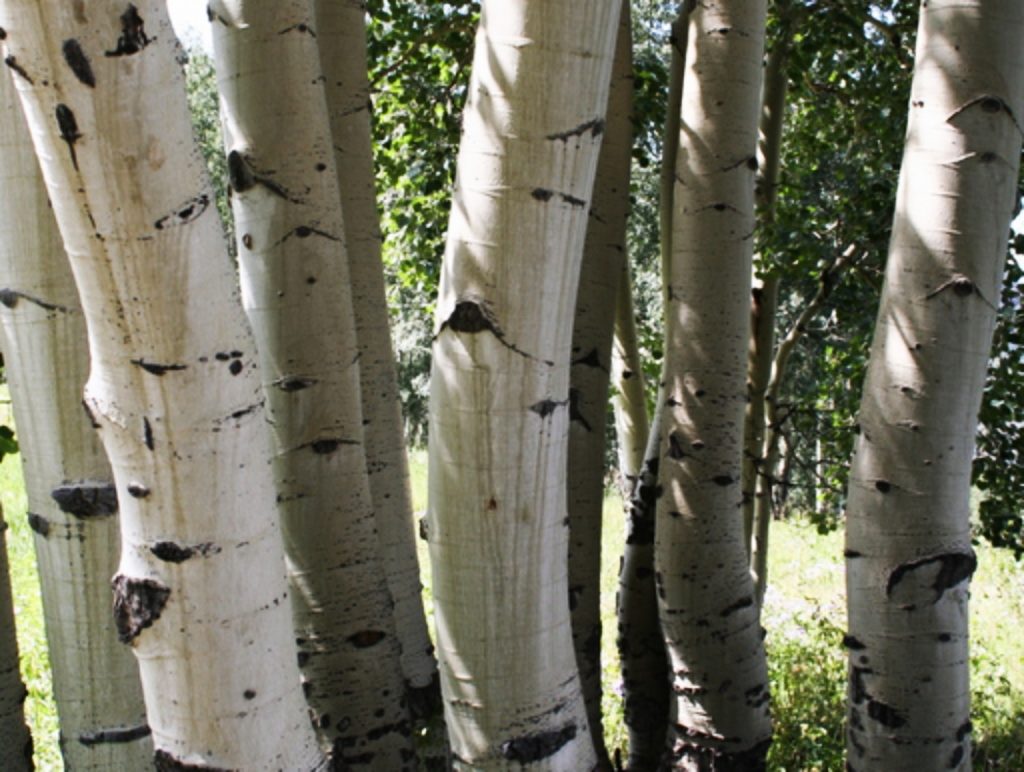
What does aspen smell like?
The smell of a fireplace is one of its greatest charms. But your fireplace can only smell as good as the wood you burn in it.
In terms of fragrance, aspen firewood has a very subtle, benign scent. It isn’t overwhelming and it isn’t particularly remarkable, but it certainly isn’t bad.
Some people describe the smell of aspen firewood as slightly sweet with undertones of vanilla.
But if you’re looking for firewood that makes your house smell more like home, aspen may not be the right choice for you. Look for cedar, juniper, hickory, pecan, and cherry woods, instead.
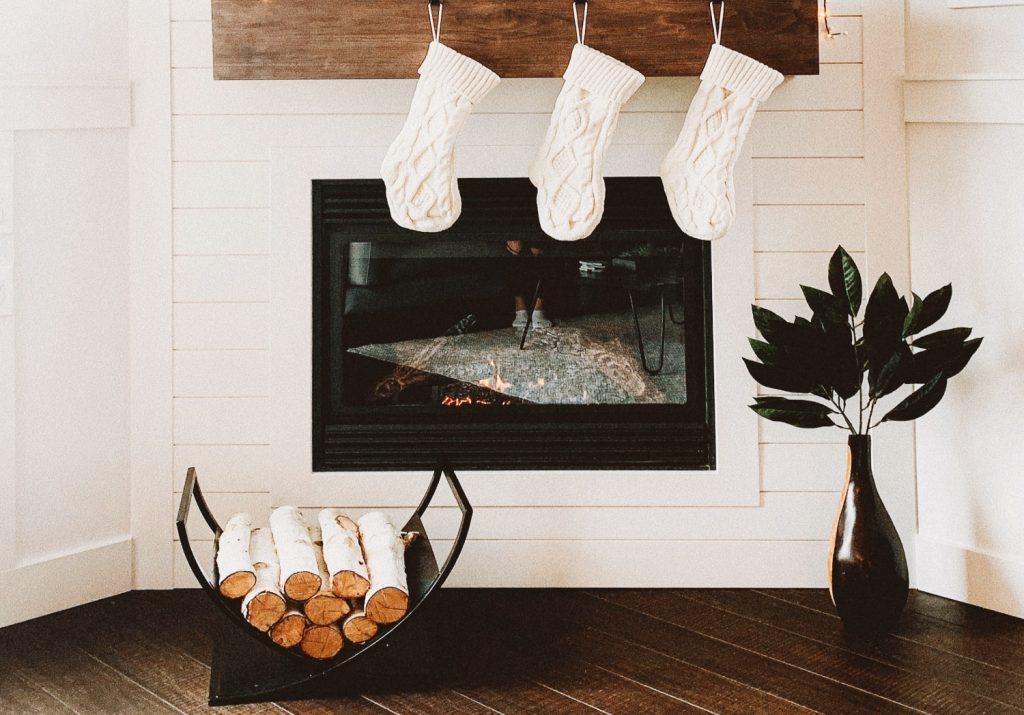
How long does aspen burn?
How long your aspen firewood will burn depends on moisture content, the size of the logs themselves, and airflow to the fire. But, in general, a single aspen log will burn for 1 to 2 hours.
Aspen logs tend to work best when used as a filler for other firewood. If you want your expensive oak firewood to go farther, then mixing in a few aspen logs can help keep the fire burning longer.
It’s also worth noting that aspen doesn’t produce strong coals. Aspen coals are flimsy and break up easily when stirred. The logs don’t provide much warmth once they’ve reached this stage.
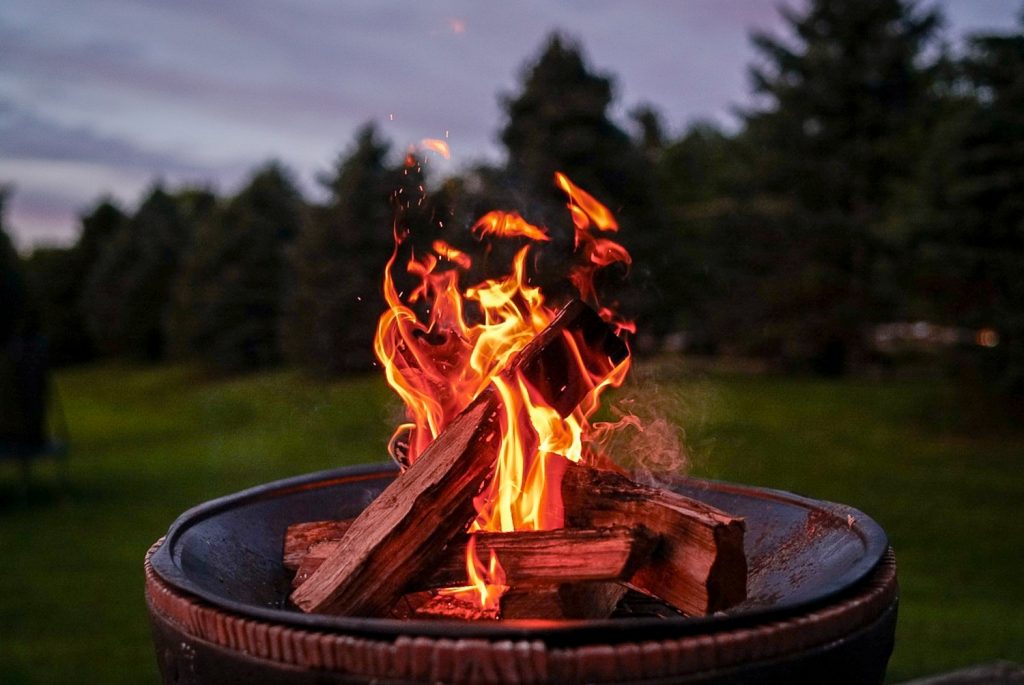
Is aspen firewood expensive?
Because aspen trees are fast-growing, and because they seem to topple over so easily, they’re a pretty affordable firewood option — at least, they are in the parts of the United States where aspen trees can be found growing naturally.
A cord of aspen firewood generally costs between $100 and $250.
Of course, how much you’ll have to pay for a cord of aspen firewood depends on a variety of factors, including availability and the time of year.
Aspen is usually much cheaper than other hardwoods because it doesn’t last as long. Since aspen burns like a softwood, it’s usually priced similarly to one.

Is aspen firewood a good choice for you?
All in all, aspen is a good firewood, but not a great firewood. If you’re looking for something that produces high heat and can burn for hours at a time, you’re better off choosing high-density hardwood, like oak or hickory.
However, if you only use your fireplace a few times a year, or if you live in a region that experiences mild winters, then aspen is an easy-to-find, affordable alternative to other hardwoods. It’s also great for stretching more expensive firewood.
If you’re looking to warm up on a cold night, aspen will help you heat up. But whether or not it’s a good choice for your fire needs is entirely up to you.
